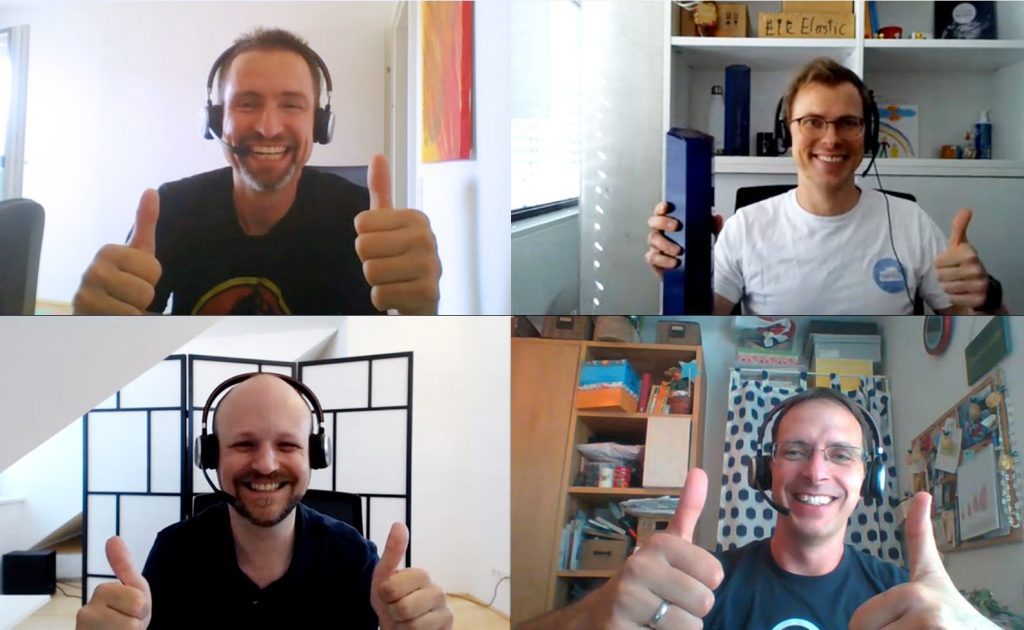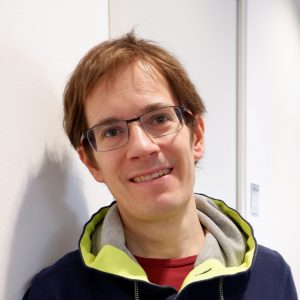
650 colleagues – that’s a lot of expert knowledge – and to ensure that all our teams and projects benefit from this know-how, we have established “Communities of Practice” for cross-functional exchange at Porsche Informatik. These allow our specialists to share their best practice and know-how and provide the entire organisation with important input as a result.
The “Dev2Ops” community is one of currently four communities. Their avowed goal: to tear down the wall between development and operations. In recent years, it has been so successful that this year our colleagues there succeeded in bringing home our “Culture” Change Award for creating real cultural change within the company. We asked two of our Dev2Ops pioneers, Senior Software Architect Christian Köberl and Cloud Architect Günter Schulmeister, for an interview.
Christian, Günter, tell us about the wall between software development and infrastructure that you want to tear down?
Christian: In IT companies, there is often this invisible wall between development and operations: developers build software and throw it over the wall into operations. These two sides have traditionally worked with their own tools and processes and as a result, each “camp” developed its own culture. With the Dev2Ops CoP, we are working to tear down this wall.
Günter: Without a common culture and language, one side does not know what the other wants to say. Also, the two groups are geared toward different goals. Developers’ performance is often measured by how quickly new features are released, while the performance of operational staff is gauged in terms of how stable the application is. These two goals can either get in the way of each other or support each other, depending on whether people work with, or against, each other.
The Dev2Ops CoP also provides training programmes on the topics of Cloud, Docker, OpenShift and Infrastructure as a Code. What can colleagues learn?
Günter: The training courses help people to understand and use the new technology. They are also intended to help build a common understanding of the concept of the Cloud. The feedback on this so far has been consistently positive, with most of the colleagues involved feeling that the time was well invested.

The Dev2Ops core team with the newly won “Culture” Change Award. The award ceremony took place online this year, but this took nothing away from the enjoyment.
What would the ideal world of POI look like from DevOps’s point of view?
Christian: In an ideal DevOps world, the product teams would be able to develop, deploy and operate their software securely and independently. They would carry out changes to the infrastructure independently via APIs and associated user interfaces. Platform teams would provide these APIs and automatically check for baseline security. Enabling teams would support the product teams in terms of more complex topics such as continuous delivery, monitoring or security and both teams would provide documentation, training and a community to ensure that the product teams could work largely independently. Personal architecture reviews of the implementation would help to identify and fix technical “deficits”.
And what would you like to see happen to enable us to get there more quickly?
Christian: Currently, setting up a server I might need takes a relatively long time. As is the case with the public Cloud, I would also like an API and a user interface that I could use to independently set up a desired server.
Günter: In the case of traditional infrastructure services, we will continue to follow the well-trodden path. This is also a matter of focus – of where we want to focus our energy. But we are delivering the self-service mentioned by Christian with our Cloud platforms. What I would like to see is a large number of applications for our positions in the public Cloud environment. Unsolicited applications are also very welcome.
This year, you received the “Culture” Change Award for the work undertaken by your community. What does this award mean to you?
Günter: Winning the award was, of course, a fantastic confirming statement! But what was much more important to us was having a great stage for the idea behind DevOps.


